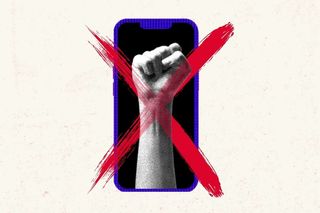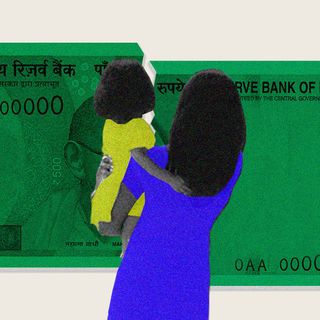
What Leads People to Believe in ‘Reverse Discrimination?’
A new study showed how white conservatives are more likely to believe in ‘reverse discrimination’ due to pre-existing racial resentment.

Upper-caste Indians, men’s rights activists, and other privileged groups often term affirmative action policies as a process of “reverse discrimination” against them — and social media feeds accordingly amplify these sentiments in the form of trending hashtags and posts. In the United States, reports have shown how white Americans harbor this perception, and often complain of being on the receiving end of policies that try to address historic privilege and injustices on the basis of race and view such policies as harmful and unjust to them. Debates around critical race theory taught at schools is one such example of white Americans feeling attacked by a tool meant to educate students about race. A new study, published in Computers in Human Behavior attempts to explain how social media interaction and preexisting racial beliefs play a crucial role in the development of such feelings among White Americans towards affirmative action policies — one that could well explain similar conflicts playing out in India too.
The study examines how social media use influences the racial beliefs of people, and further highlights the dangers of algorithmic echo chambers and biases on the sites. While the researchers observed that an increase in engagement and interaction with politics and identity on social media reduced the belief of reverse racism among participants who identified as Liberal, the same beliefs got crystallized among those who identified as Conservative or Independent. The authors believe this could be linked to preexisting feelings of racial resentment — essentially, those who hold prejudicial beliefs already are more likely to believe in the myth of “reverse discrimination.” Also known as symbolic or implicit racism, racial resentment can be defined as the existence of negatively prejudiced feelings against racial minorities among a racial majority such as White Americans believing that their Black counterparts are “morally inferior” and “less hardworking” than they are.
The researchers note that, among conservatives, the preexisting feeling of racial resentment was much higher in the beginning than those who identified as liberal. This feeling increased as they engaged with politics and identity on social media, and coalesced into forming their belief in the idea of reverse racism. “Altogether, social media engagement, political identity, and racial resentment all had an influence on reverse racism beliefs,” noted Ian Hawkins, who co-authored the study with Muneeba Salim. The researchers acknowledged the limited scope of their study, as it looked only at social media engagement, and stressed that it was also necessary to look into other forms of media that people interact with. “Future research should examine how entertainment television, video games, the news, etc. might also influence reverse racism,” Hawkins added.
Related on The Swaddle:
People With Privilege Tend to Think Welfare Policies Will ‘Harm’ Them, Shows Research
In India, anti-caste voices have raised their aspersions on sentiments against reservations by “hardworking general category persons”. In a famous essay, anti-caste scholar Kancha Ilaiah Shepherd notes that “Upper caste youth are not willing to tolerate the sharing of government educational facilities with youth coming from historically oppressed communities”. The myth of merit has been manufactured by upper-caste communities to further the argument of “reverse casteism” — in reality, however, the merit of a person is influenced by the social and cultural capital that they hold in society and cannot be seen in isolation.
These sentiments play out strongly on social media, and are consequently amplified to a worrying degree. Results of this year’s Joint Entrance Examination, the standardized test for admissions to undergraduate engineering, architecture, and technical programs, were declared on Monday, 11th June. Soon after, a Twitter user (in a now deleted tweet) lamented that his daughter wept despite scoring 92% marks in the exam, as she would not get a seat in her desired branch and college due to her “general” category status. In India, the law mandates the setting aside (or reserving) of a small percentage in the total number of seats in public educational institutions and government jobs for the vast amount of Dalits, Adivasis, and Backward Classes in the country who are underrepresented. The rest of the (largely) upper-caste population (across religions) falls under the unreserved or general category.
Comments like the above are a common occurrence on the Indian social media landscape and frequently keep appearing, especially on days of examinations and results. A usual template that plays out in these scenarios is a student or their parent lamenting about losing out on their preferred college or job despite scoring high marks in entrance examinations, blaming it all on reservations — and implicitly, communities who avail of them. Notwithstanding that other strategies — such as increasing the number of seats and vacancies — are available to advocate for, many go on to proclaim that this situation “forces” them to finish their education abroad. These accounts not only refuse to acknowledge their own historic and current privileges — like having the means to go abroad in the first place — but they also paint themselves as the victim in the current situation. They believe, in other words, that anti-discriminatory policies are in fact, discriminatory towards them, and that they are in fact punished for their great history and hardworking ethics.
A similar sentiment against affirmative action and public concessions for women is displayed by men’s rights activists (MRAs). MRAs are opposed to the feminist movement, and are constantly against legislations and institutional support systems directed towards making women more visible and assertive in public and private spaces dominated by men. These include public transport concessions such as free travel or reserved seats, anti-dowry and anti-harassment laws, equal marriage and divorce rights, and maternity leaves. Most recently, they began to trend various hashtags opposing a petition to criminalize marital rape in India, claiming that that such laws have only led to more “fake cases“ to torture and harass men. The pattern of such arguments, once again, is familiar: echoing the idea that they are the ones being discriminated against by these laws. In recent times, Indian MRAs have even appealed for the formation of a National Commission for Men, similar to the existing National Commission for Women.
The study on reverse racism indicates how allegations of reverse discrimination can be traced back to the preexisting prejudices of those who have long held privilege and power in society, and how social media plays a role in cementing such beliefs among many others. While it incorporates sentiments about reverse racism, it provides key insights about the phenomenon as a whole. In a global patriarchal world, this would indicate that MRAs fear sharing space and power with women because of their own prejudiced notions that they refuse to challenge. In the South Asian context, this could mean that the woes of general category students stem from a feeling of caste-supremacy and entitlement, and their cry of reverse discrimination is actually just a rebranding of pure old casteism.
Amlan Sarkar is a staff writer at TheSwaddle. He writes about the intersection between pop culture and politics. You can reach him on Instagram @amlansarkr.
Related


Karnataka’s New Education Proposal Calls Pythagoras Theorem, Newton’s Law ‘Fake News’
